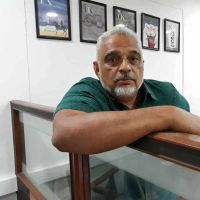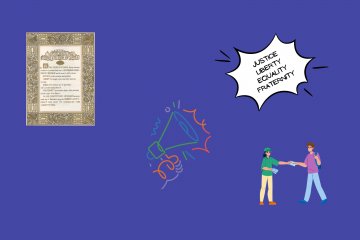
It’s just an anecdote but it does capture the flavour. “When
a cow returns home after grazing the whole day, the dust it raises while
walking is called godhuli. It is considered the most auspicious time.
Why? It’s because when cows graze the whole day, they absorb the sun rays
through the horns. This energy is transmitted to the earth through its hooves.
That’s why when bulls are used for ploughing, the soil does not need
fertiliser.”
That is a comment by Uttam Maheshwari (Fou





